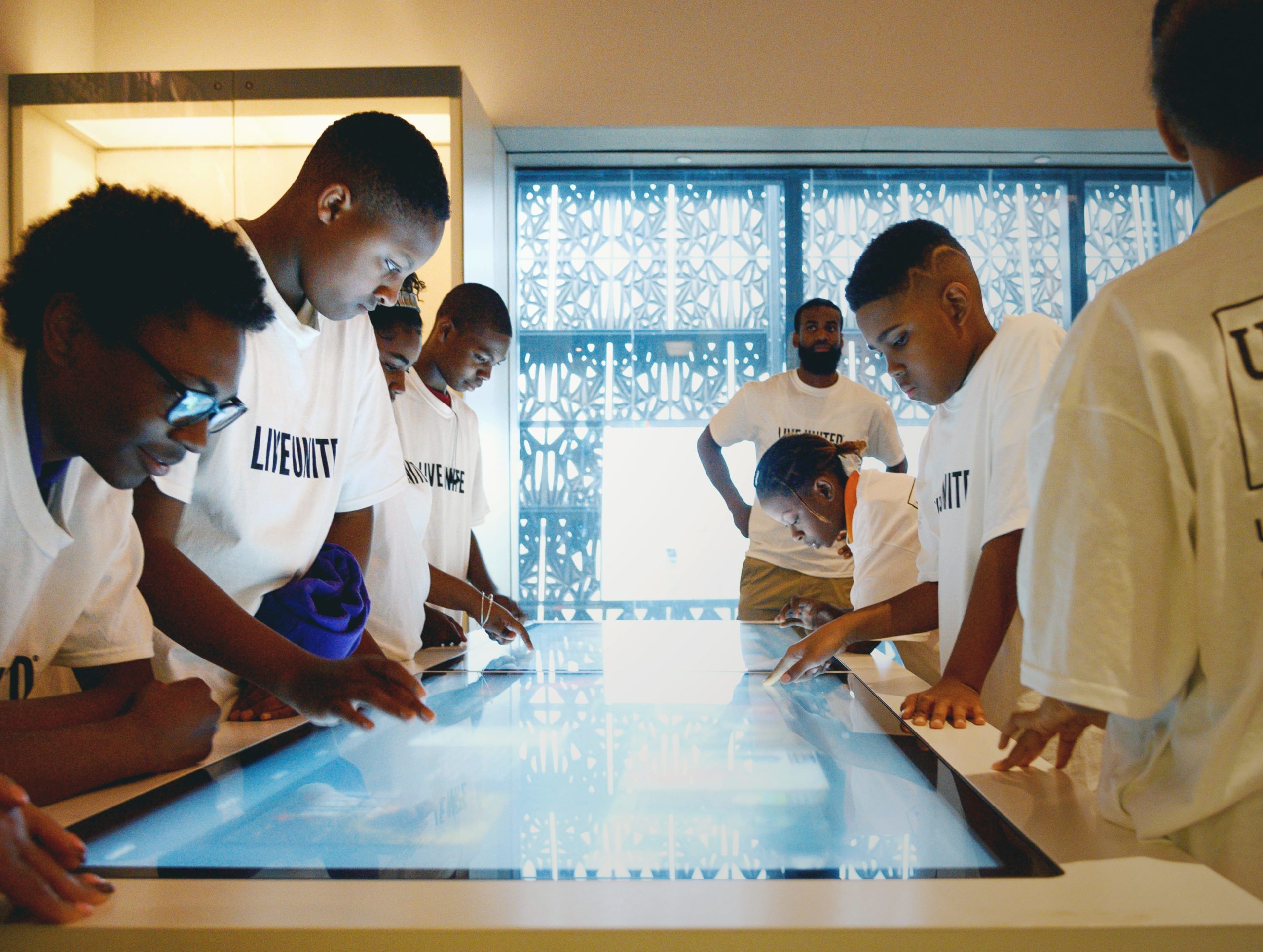United Way NCA teams up with Deloitte to Deliver STEM to Region’s Middle School Students
Apr 07, 2021

By Extending After-School Programs to Students, United Way of the National Capital Area is Bridging Gaps in Academic Opportunities
Washington, DC (April 7, 2021)—Virtual learning has put a spotlight on deficits in access to academic opportunities that existed long before the current COVID-19 pandemic. In response, United Way of the National Capital Area and Deloitte have partnered to bring a 12-week STEM, one-hour, after-school program for 40 Title I middle school students in Prince George’s County. The program is designed to engage students who are not typically considered for expanded STEM opportunities. The students experience unique engineering and career exploration activities in Human Centered Design (HCD) and Artificial Intelligence (AI). STEM professionals from Deloitte created the curriculum and provide volunteers to instruct students in small groups.
The AI after-school program comes at a critical time, both in terms of the advancement of young people and in closing existing opportunity divides. In a world increasingly dependent on automation, engineering and programming, students who are exposed to STEM and AI in their early education are more prepared to enter jobs in those career paths. These jobs also tend to pay higher wages due to the skills and training needed to be successful. In helping usher in this education-enrichment opportunity to students, United Way NCA is helping middle school students gain access to experts who can help guide them through what STEM and AI is all about.
Still, a steep challenge remains. For students living in low-income communities, the challenges of COVID-19 are disproportionately disrupting their education. In the National Capital region, the areas hardest hit by the virus are also the same communities with the deepest gaps in education. A steep digital divide in broadband connectivity offsets low-income students over middle- and upper-income students. According to the FCC, as of 2019, over 21.3 million people lacked access to high-speed internet. Low-income families also tend to be smartphone-dependent, lacking multiple devices for students to share for remote learning, with a Pew Research report concluding that 35% of students lacked access to broadband. The quality of remote learning is decided by several factors: accessibility to remote learning, quality of learning, home support and level of engagement. Families that cannot afford basic needs, like high-speed internet, also struggle with access to health care and nutritious foods, increasing risk factors in developing COVID-19.
While providing enriched education opportunities is invaluable to making education more equitable for all, it is equally as urgent that every student be given equitable pathways to reach those opportunities. COVID-19 has unveiled long-present gaps in the infrastructure of our education system. As we move forward, we must boldly reimagine ways in which our students aren’t just given access to equitable opportunities, but they are empowered with the resources and support systems to achieve their goals.
To learn more or to get involved, visit unitedwaynca.org.
About United Way of the National Capital Area
United Way of the National Capital Area fights for the health, education and economic opportunity of every person in the National Capital Area community. United Way NCA has been improving lives by creating measurable impact in the District of Columbia, Northern Virginia and Montgomery and Prince George’s counties for more than 45 years. In 2020, United Way NCA was among 384 organizations across the United States to receive a generous transformational investment from novelist and venture philanthropist, MacKenzie Scott. For more information about United Way of the National Capital Area, visit UnitedWayNCA.org.